Taking that step toward committing to change, to a new life, is the first of many changes you’ll need to make to move forward and make decisions that will keep you in recovery. Change is hard, but without change, it is impossible to heal from SUD and the underlying things that are driving it. Treating and managing co-occurring disorders is one of the most important components of recovery, but that cannot be done without being willing to make a change.
“The first step towards getting somewhere is to decide that you are not going to stay where you are.” It is a fairly simple addiction quote, but it holds the key to why change is so essential in recovery.
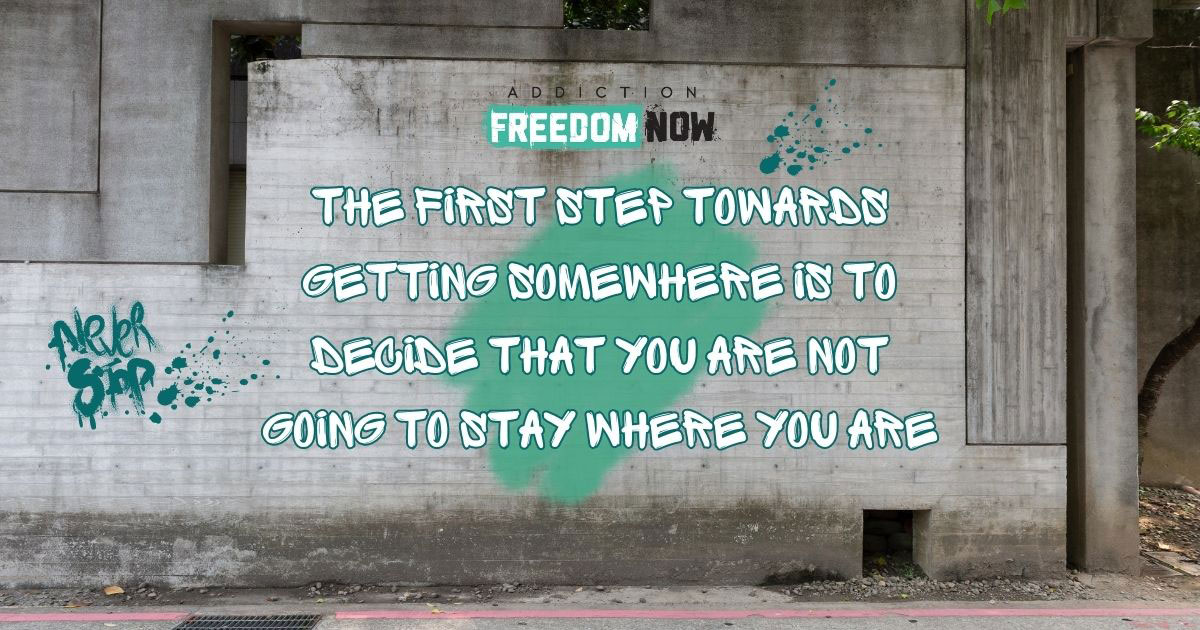
Positive Quotes and the Addiction Cycle
Once you get used to doing something in a particular way, it becomes a habit; eventually, it’s just part of a lifestyle. Consider something as simple as waking up in the morning and going for a walk before you start anything else – eventually, that process will become second nature. It’s a part of your daily routine and a part of your life. With negative habits like SUD, substance use embeds itself in your life and becomes a part of your lifestyle, beginning a destructive cycle. While habits like daily walks are harmless, cycles like SUD are detrimental to your life.
Cycles, by nature, repeat themselves over and over, and people can stay stuck in them because they begin to feel it’s easier to live how they’re living than to make a change. In this way, substance use disorders can feel like a cycle that’s impossible to break. That’s why making the first step away from substance use – and then a second, and a third – is so difficult. When people believe that even the first step won’t change anything and that their lives couldn’t possibly improve, they stay in their addiction. Addiction quotes and mantras are incredibly helpful because they remind us of positive thoughts.
It’s crucial to recognize that it’s also difficult – and much more dangerous – to continue to live a life consumed by addiction. You, and others with SUD, are capable of much more than you think, and your willingness to change makes a huge impact on your recovery. While familiarity seems safe, recovery requires you to make a change, the catalyst for bettering your life. Change can be scary, but it is far from impossible and essential for escaping the cycle of SUD.
Why Committing to Change Is Necessary
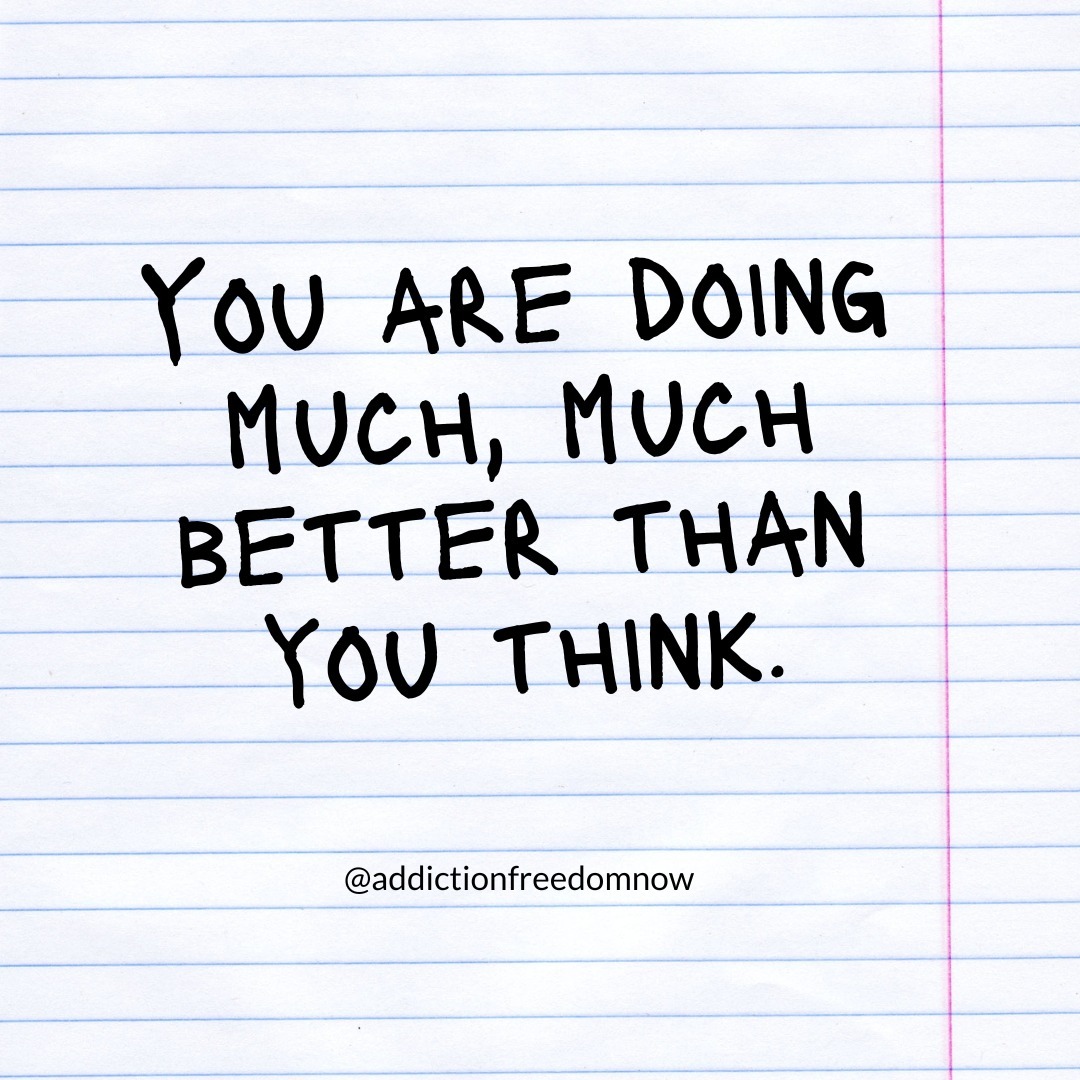
If you are unwilling or unable to make that first step toward change and recovery, you cannot access the care you need in the form of detoxification, rehab, or other therapies. This is one of the biggest hurdles you’ll face as you begin pursuing recovery. There are many roadblocks you can experience that may keep you from making important changes for your health and well-being.
Some of these things can include:
- Being scared of new or unknown challenges
- Change doesn’t seem helpful or relevant, or the change is unlikeable.
- Being unable to see a reason that a change needs to be made
- Thinking it’s easier to keep things how they are rather than taking a risk or gamble
- Change is stressful and induces defensiveness.
Any of these reasons, and many more, can be used to explain away making a change, whether you’re making excuses to others or wrestling with yourself. But these exact reasons are why change is so necessary – the urge to search for excuses is a very real indication that the issue you’re facing has taken over your life.
Quotes and Positivity Helps Break the Addiction Cycle
Recovery is a lifelong process and one that cannot be faced without committing to leaving old habits and the past behind. In order to do this, you must accept that change needs to occur, learn to accept yourself and your past mistakes, and recognize that your disorder doesn’t define who you are as a person.
Understanding SUD
You must begin by making an effort to understand the addiction cycle before you can truly break free from it. In particular, you must recognize that there is a problem – that you have a substance use disorder, a compulsion you’ve hardwired with repetition into your brain to abuse substances. In addition, you’ll need to identify your substances of choice and the possible stressors or triggers that lead to use.
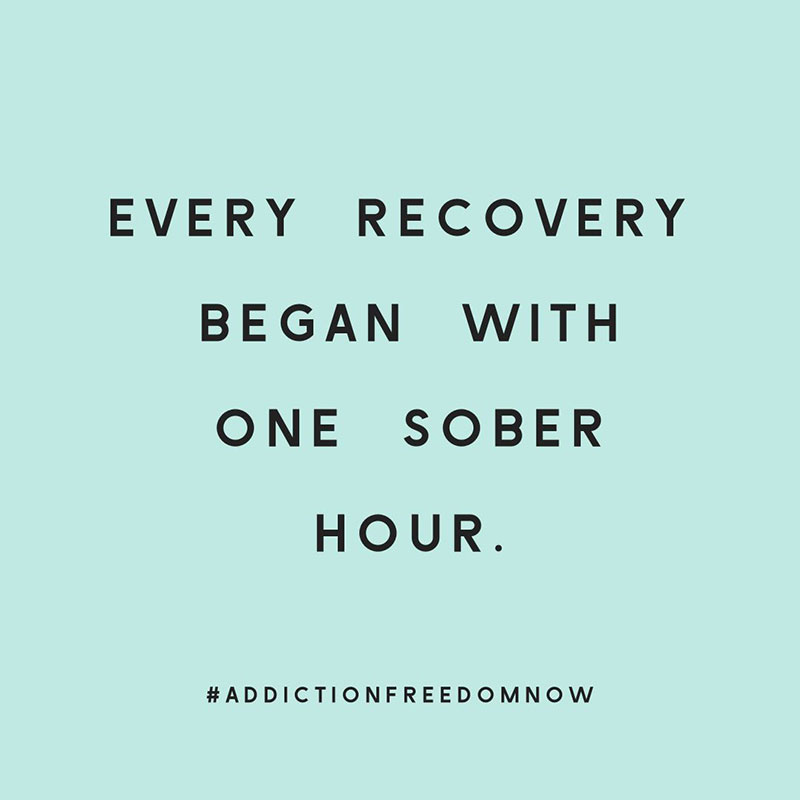
Changing Your Habits
Addiction sayings and quotes help change our habits. Thoughts help shape our habits; in essence, we are what we think. Once the problem and the habits you’ve developed are identified, you can begin to create healthy habits that can replace the old ones. This is hard to do, but it is incredibly important to the recovery and cycle-breaking process. Practices like cognitive behavioral therapy could help you identify the triggers and negative thoughts that lead you to use substances and replace them with positive ones and associated positive behaviors.

With the work of therapy and other kinds of exercises, a person working toward recovery can face their SUD and work to resolve the problems surrounding it. Therapy comes in a variety of forms, but without it, a person with SUD cannot effectively explore their triggers and learn to cope with them properly.
Turning Positive Addiction Quotes to Habits
Finally, you need to be willing to continue practicing healthy behaviors to create healthier habits. Leaving behind addiction can only work when you develop new routines to replace the old ones. Once you’ve filled your life with new healthy habits and coping mechanisms to deal with triggers, you can begin to maintain your new life and find long-term recovery.
There’s no set amount of time it should take for someone to work through each of these steps. SUD can take years to become all-encompassing, and it’s possible, and even likely, that you will need to take just as much time to reach the final step of the cycle-breaking process.
What Emotional and Behavioral Change Looks Like
As mentioned, we are our thoughts. Therefore, positive mantras or quotes related to addiction support emotional and behavioral change. Change can look like a lot of things depending on your circumstances. However, when you have SUD, your whole lifestyle begins to revolve around substance use. Because of this, your entire life typically must be adjusted to make a recovery possible.
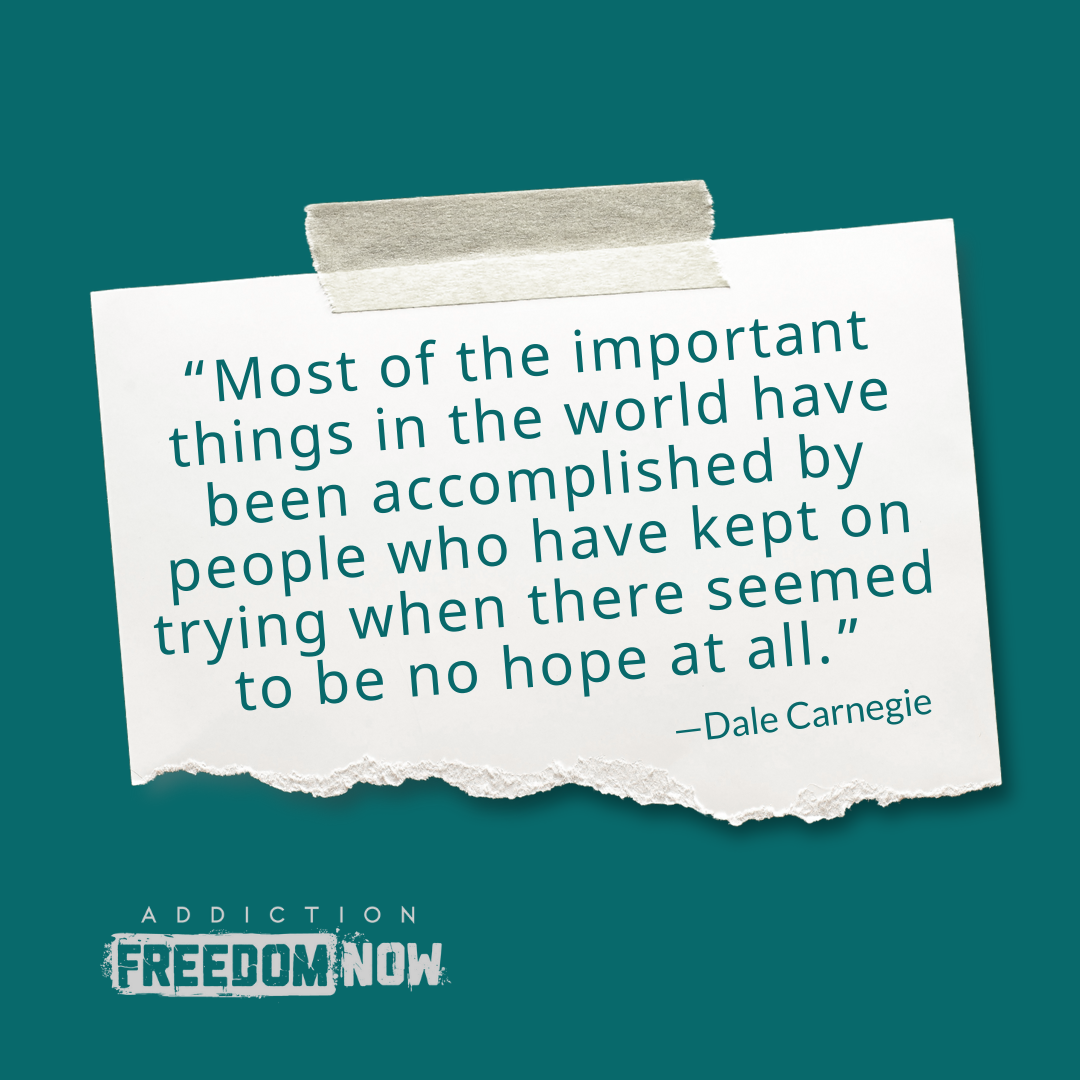
Environmental Changes
Making environmental changes can mean making changes to things like living situations and hangout spots. Old haunts like nightclubs, bars, and homes where you once used substances may need to be kept off-limits so you can maintain your recovery. This can be tricky because those become comfortable places, and it’s possible that some of the people you associated with became friends.
Relationship Changes
Maintaining sobriety while surrounded by people who use substances or people who aren’t supportive of your new life is very challenging. It’s possible that you will need to make a change regarding these old relationships. That can be upsetting, but you need to remember that putting yourself first is necessary for change. You can’t support relationships that cause you harm to the detriment of your recovery and your healthy relationships.
Behavior Changes

As mentioned, changing your habits is an incredibly crucial part of the process, and this can take on many different meanings depending on the habits you developed while in active substance use. For example, it may be time for a new job because the old one no longer supports your new life, or you may want to reach out to family to repair relationships damaged by SUD. Or, it could be as simple as addressing your diet or your sleep schedule. Adjusting these things could help you maintain your lifestyle changes.

Self-Care
Being more mindful of the way you spend your time can be helpful too. You want to take care of yourself while you’re on this journey because burnout can easily happen after months of work on recovery. This is the perfect time to rekindle your love for your favorite hobbies, find time to start new ones, embark upon a spiritual path, go to a spa, or start a new diet and exercise routine. However, choosing to go about your self-care in a healthy way is the right way.
Taking the First Steps
The first step in recovery is the jumping-off point to change, but it requires three things: acceptance, intention, and motivation.
Acceptance
You must learn to accept that you need to make these changes to build a new life. Recognizing that you can’t change anything outside of yourself and your own reactions means that you accept that you need to be more mindful about your life and choices. You’re also letting go of judgment about your past. When you accept things, you can better deal with potential stress triggers that once affected your sobriety.

Intention
Lead your life with intention. Intention means that all the choices you make are with a particular intention in mind. When you make a choice, recognize why. If you’re going to make a change, understand why that change is being made. For example, if coffee gives you an upset stomach, and you quit drinking it, you recognize that you’re quitting coffee because it hurts you. That’s a juvenile example; however, you can follow a similar formula in your recovery. Understand why you need to make the change.
Motivation
There are so many places where we can find motivation in our lives. The reasons that motivate one person to change will likely be different from yours. Finding your own motivation is important so that you have something to recognize as a goal. For example, someone who wants to run a 5k may think, “I’d just like to finish the race.” The motivation for finishing the race may mean that the person ends up working hard to finish first or that they’re moving throughout the race. No matter the motivation, it makes change easier to acknowledge and understand.
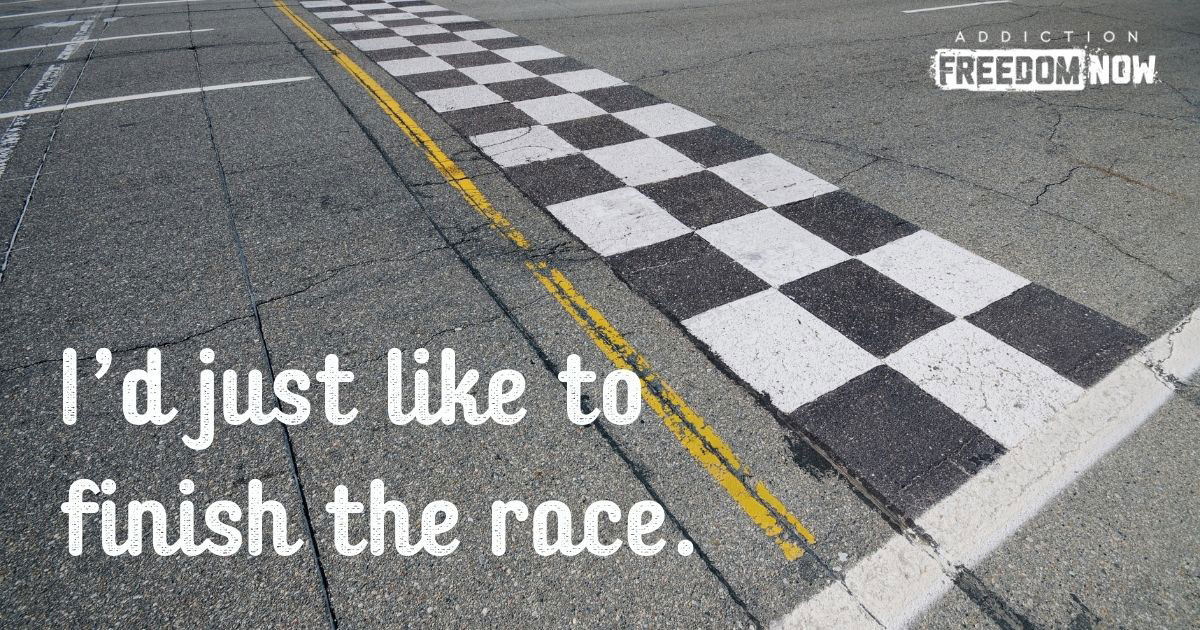
The Importance of Support
Support systems help hold you accountable for the changes that you’re trying to make in your life. When you set intentions, accept the change, and pinpoint your motivation for these shifts, you’ll need support to help you stay on track throughout your journey.
You can choose to join a support group, which can be incredibly helpful for those with and without family or friends who support you. A support group puts you in touch with others who are struggling in similar ways to you so that you don’t feel totally alone. Knowing that you’re not the only person in your situation can help you manage your triggers.
Family can be helpful but may not be viable for all people. Chosen family can also be an incredible support system. It’s important that you have a support network you can reach out to when you need it the most. These people can help hold you accountable for your new life, and they can also hold out a helping hand throughout your journey. Whether that’s helping you attend therapy and outpatient care or attending meetings with you, these people need to support your journey. They should recognize that you’ll be going through changes and shifts that need understanding and reliable encouragement from people.
Positivity and Addiction Quotes Help You Embrace Change
The quote, “The first step towards getting somewhere is to decide that you are not going to stay where you are” may seem simple, but it carries much weight for individuals in addiction recovery. It is a reminder that change begins with a decision, and that the act of taking that first step can be the most transformative one. By acknowledging the need for change and taking action towards it, individuals increase their chances of achieving long-lasting recovery and a life free from addiction.
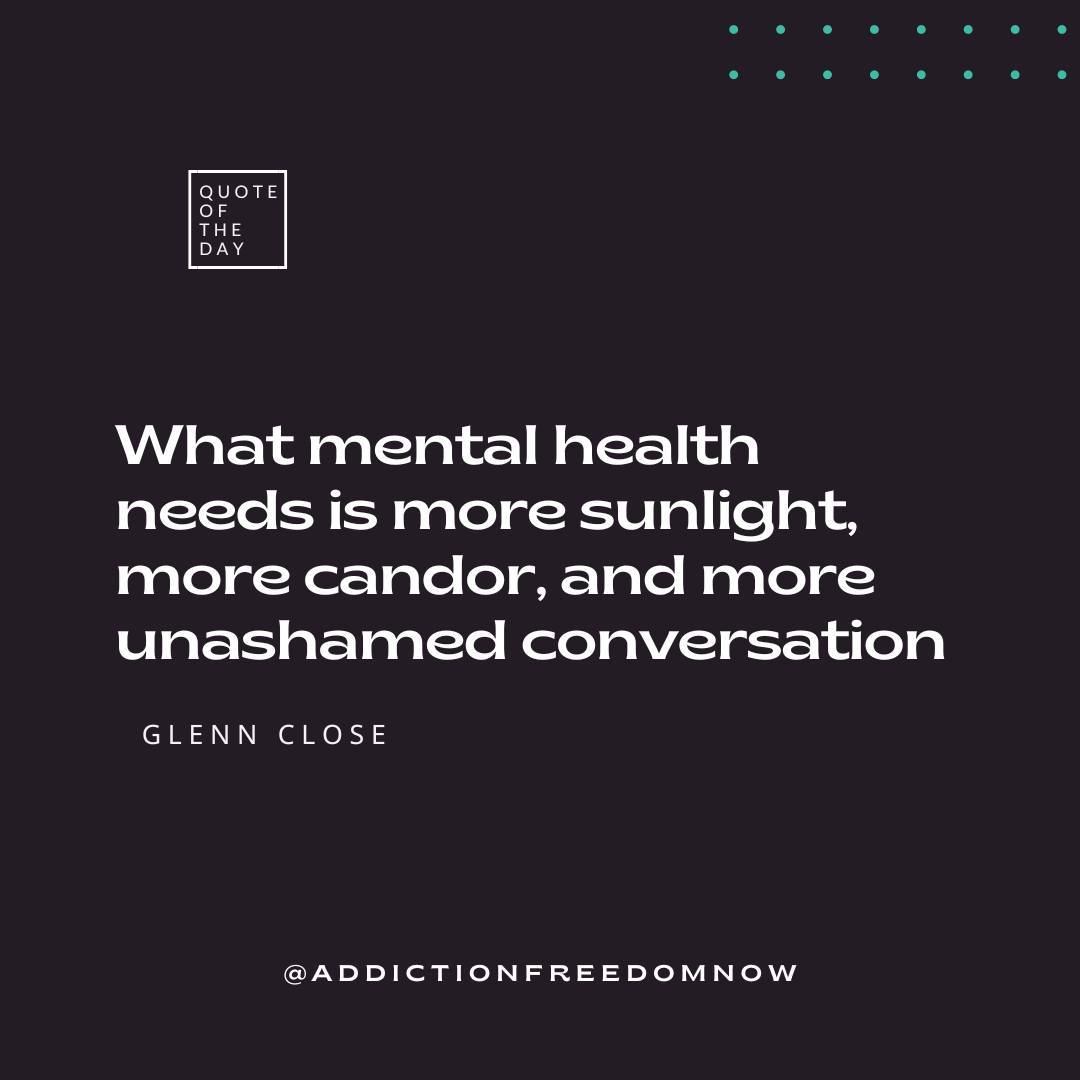
At Addiction Freedom Now, we see addiction recovery quotes as a major motivator and help. These positive mantras and addiction quotes help you recognize that your journey isn’t yours alone to face. They are popular, but they’re also a helpful tool that we’ve found that can give you the boost you need to maintain your sobriety. Taking that first step is tough, but when you know where you want to be and what you want to accomplish, it can be much easier. By recognizing that you need to change, you’re taking the first step. Taking this first step allows you to start your recovery quest and begins your journey to a better life into long-term recovery. Join our addiction recovery community for more positivity that supports change.
Resources :



